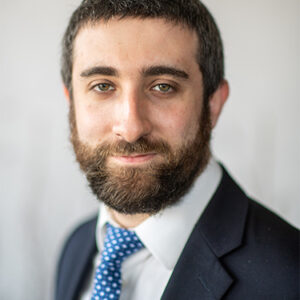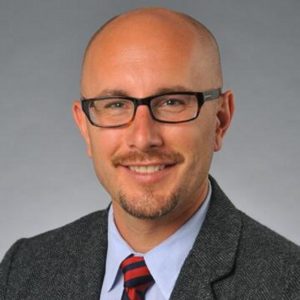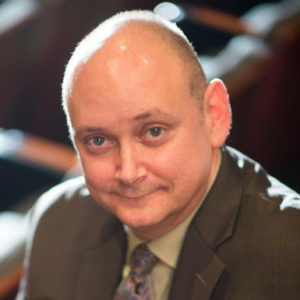Constitutional Studies Program
Study key constitutional questions and controversies with leading legal experts & practitioners.
July 14–18, 2025
Washington, DC
In the fifth week of Political Studies, fellows will turn to contemporary issues of domestic policy, with a focus on understanding how ideas influence policy.
One seminar will introduce students to the approaches and ideas of twentieth-century conservative social science through four great debates in social policy: family structure, poverty, welfare, and crime. The second seminar will explore policy at the intersection of politics and economics, and offer a critical examination of current fault lines: welfare state design, income inequality, and the delicate balance between governmental intervention and economic autonomy.
Charles Fain Lehman on Social Policy at PSP
This course is part of our residential Political Studies Program. Fellows participate in morning seminars and meet prominent men and women in public life over afternoon and evening sessions. Up to 32 fellows will be selected.

Charles Fain Lehman is a fellow at the Manhattan Institute, working primarily on the Policing and Public Safety Initiative, and a contributing editor of City Journal. His work on criminal justice, immigration, and social issues has appeared in the Wall Street Journal and Tablet, among other publications.

Charles Fain Lehman is a fellow at the Manhattan Institute, working primarily on the Policing and Public Safety Initiative, and a contributing editor of City Journal. He also hosts the podcast Institutionalized with cohost Aaron Sibarium.
Lehman was previously a staff writer with the Washington Free Beacon, where he covered domestic policy from a data-driven perspective. His work on criminal justice, immigration, and social issues has appeared in the Wall Street Journal, National Review Online, and Tablet, among other publications, and he is a contributing writer with the Institute for Family Studies. Originally from Pittsburgh, he now lives in the Maryland suburbs of Washington, D.C.

Daniel DiSalvo is a Senior Fellow at the Manhattan Institute’s Center for State and Local Leadership and an Assistant Professor of Political Science at The City College of New York-CUNY. His scholarship focuses on American political parties, elections, labor unions, state government, and public policy.

Daniel DiSalvo is a Senior Fellow at the Manhattan Institute’s Center for State and Local Leadership and an Assistant Professor of Political Science at The City College of New York-CUNY.
His scholarship focuses on American political parties, elections, labor unions, state government, and public policy. He is the author of Government Against Itself: Public Union Power and Its Consequences (Oxford University Press, 2015) and Engines of Change: Party Factions in American Politics, 1868-2010 (Oxford University Press, 2012).
DiSalvo writes frequently for scholarly and popular publications, including National Affairs, City Journal, American Interest, Commentary, The Weekly Standard, Los Angeles Times, New York Daily News, and New York Post. He is coeditor of The Forum: A Journal of Applied Research in Contemporary Politics.
DiSalvo holds a Ph.D. in politics from the University of Virginia.
Readings:
Discussion Questions:
Readings:
Discussion Questions:
Readings:
Discussion Questions:
Readings:
Discussion Questions:
Readings:
Discussion Questions:
Readings:
Discussion Questions:
Readings:
Discussion Questions:
Readings:
Discussion Questions:
Readings:
Discussion Questions:
Readings:
Discussion Questions:
Additional Course Materials:
Judge Roy Altman
Judge Roy K. Altman, at 36, became the youngest federal district court judge in the country—and the youngest federal judge ever appointed in the Southern District of Florida. He received his BA from Columbia University and his JD from Yale Law School, where he was projects editor of the Yale Law Journal. After law school, Altman clerked on the 11th Circuit Court of Appeals for the Honorable Stanley Marcus.

Diana Schaub
Diana Schaub is a nonresident senior fellow at the American Enterprise Institute (AEI), where her work is focused on American political thought and history, particularly Abraham Lincoln, Frederick Douglass, African American political thought, Montesquieu, and the relevance of core American ideals to contemporary challenges and debates. Concurrently, she is Professor Emerita of Political Science at Loyola University Maryland, where she taught for almost three decades.

Greg Weiner
Greg Weiner is President of Assumption University and founding director of the Daniel Patrick Moynihan Center for Scholarship and Statesmanship. He is the author of American Burke: The Uncommon Liberalism of Daniel Patrick Moynihan and Old Whigs: Burke, Lincoln and the Politics of Prudence.

Matthew Continetti
Matthew Continetti is the director of domestic policy studies and the inaugural Patrick and Charlene Neal Chair in American Prosperity at the American Enterprise Institute (AEI), where his work is focused on American political thought and history, with a particular focus on the development of the Republican Party and the American conservative movement in the 20th century.

Daniel DiSalvo
Daniel DiSalvo is a Senior Fellow at the Manhattan Institute’s Center for State and Local Leadership and an Assistant Professor of Political Science at The City College of New York-CUNY. His scholarship focuses on American political parties, elections, labor unions, state government, and public policy.

Adam J. White
Adam J. White is the Laurence H. Silberman Chair in Constitutional Governance and senior fellow at the American Enterprise Institute, where he focuses on the Supreme Court and the administrative state. Concurrently, he codirects the Antonin Scalia Law School’s C. Boyden Gray Center for the Study of the Administrative State.